The frenzied first few days of 2018 NFL free agency are winding down, with the bulk of high-profile players inking multimillion-dollar contracts. One player, though, has been waiting patiently by the phone: Eric Reid, a safety with the San Francisco 49ers who has been a leading voice in player protests the last two seasons.
The safety market is a bit jammed right now, what with Tyrann Mathieu, Kenny Vaccaro, and others still available and the Seattle Seahawks fielding possible trade offers for Earl Thomas. So there’s a non-zero chance that Reid will find a suitor once a few superior talents fall off the board. There’s no denying Reid’s abilities on the field.
The former first-round draft pick is only 26 years old, and in 13 games last year, he showed his versatility, shifting from free safety to strong safety and even logging some time at starting linebacker after Navorro Bowman was released in October. With two interceptions and 67 tackles recorded in 2017, he’s amassed 10 and 327 respectively in his career, been named to an all-rookie team, and earned a trip to the Pro Bowl in 2013.
Even though he suffered a mild knee injury, by the end of the year, 49ers head coach Kyle Shanahan described him as “great” and said he was “playing his best football.”
And yet, nothing. No offers. No rumors of offers, even, at a time when agents and various hangers-on are bombarding NFL reporters with all manner of gossip about what player might catch the gleam of some general manager’s eye.
For his part, Reid isn’t holding back as to why he remains unsigned: He says it’s because he participated in on-field protests about state-sanctioned violence and the inequitable treatment of blacks by law enforcement.
“The notion that I can be a great signing for your team for cheap, not because of my skill set but because I’ve protested systemic oppression, is ludicrous,” Reid tweeted March 15, 2018. “If you think is, then your mindset is part of the problem too.”
The blame, according to Reid, shouldn’t be placed on NFL GMs. Instead, it’s NFL owners who have made it clear that they want nothing to do with him. “People who know football know who can play. People who know me, know my character,” he wrote.
Reid was one of the first NFL players to take a knee at the start of the 2016 season. He continued last year, spearheading a coalition comprised of current and former players which demanded funds from league to address social justice issues. Reid left the coalition in November, alleging that the NFL was attempting to neuter the group’s impact and message and buy off the protesters. (There are numerous prior examples of the NFL using its ample financial resources in an attempt to win the PR war and put an end to a spate of negative press.)
As Reid told Slate at the time, “[NFL Commissioner] Roger Goodell is trying to make this as easy for the owners to agree to as possible so that — again, their goal is to end the protests.”
In an interview with the New Orleans Times-Picayune, he went further, describing the relatively meager sum the NFL will be contributing as “reactionary.”
“I think it's great they want to help our communities. It's going to take more than $3 million, which is what [the NFL] gave the Coalition for systemic oppression,” he said. “It's a long fight.”
This is not to say that Reid is definitely being blackballed, as is the case for his former teammate Colin Kaepernick. An ongoing lawsuit filed by Kaepernick may unearth some proof of a concerted effort by the NFL to exile him, but in the interim, two teams have already said the quiet part out loud when it comes to players who have protested.
Earlier in March 2018, Miami Dolphins owner Stephen Ross told the New York Daily News that he’d somehow force his team to stand during the anthem then quickly tried to walk it back. Sources told the Houston Chronicle that no one who kneeled would ever suit up for the Houston Texans, though the team denied that the line existed.
But Reid has already accepted the possibility that he may be similarly and unjustly sidelined. “It's a possibility,” Reid said at the end of the season. “There are probably teams that won't want to talk to me because of it. I'm hopeful that I will be on a team next year, but if not, again, that's okay with me.”
The suspicion that football’s powers that be view his activism as an unnecessary distraction has been on Reid’s mind since August.
“If I’m not on a team next year, I’ll be at home unhappy that I’m not on a team,” he said. “But I’ll be satisfied that I did what I believed was right. And that’s being a voice for the voiceless and standing up for the oppressed.”









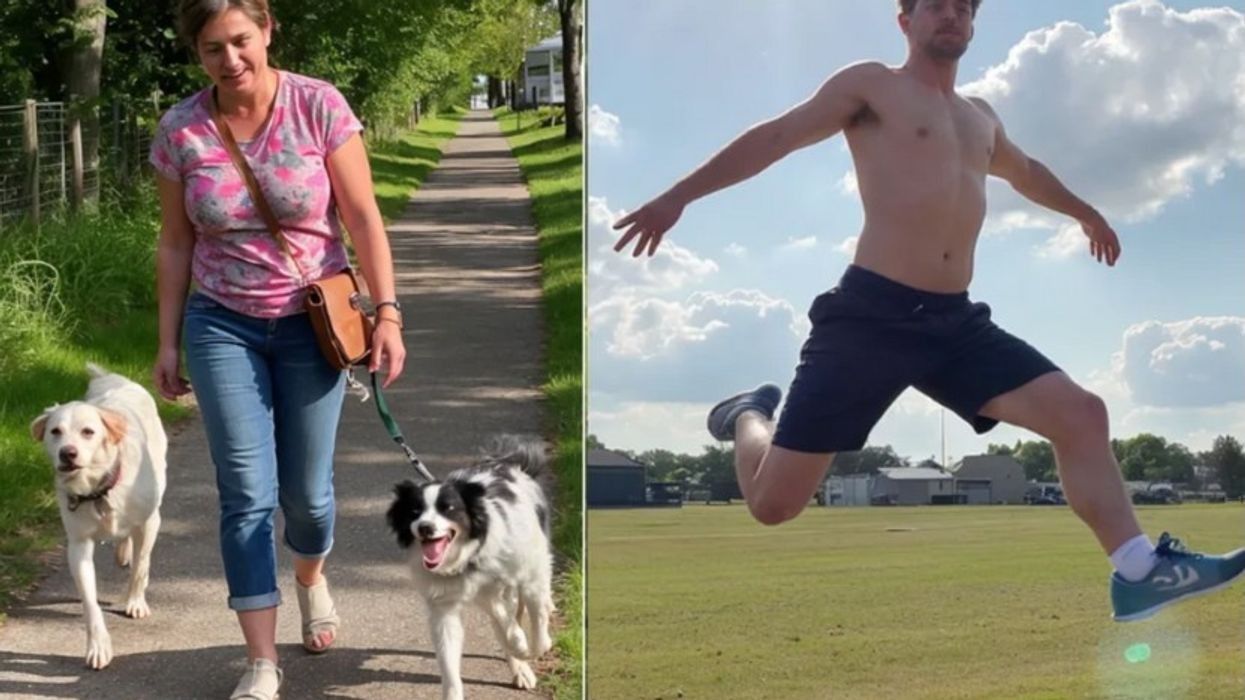





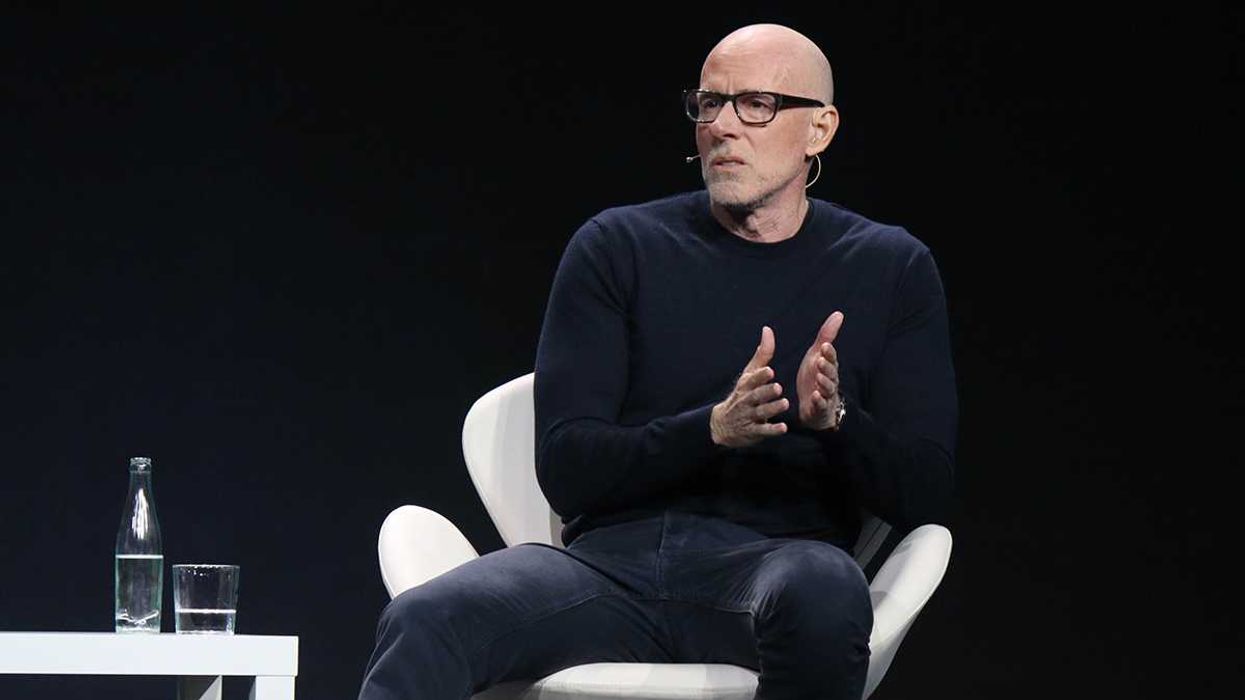
 Self reflection.Photo credit
Self reflection.Photo credit 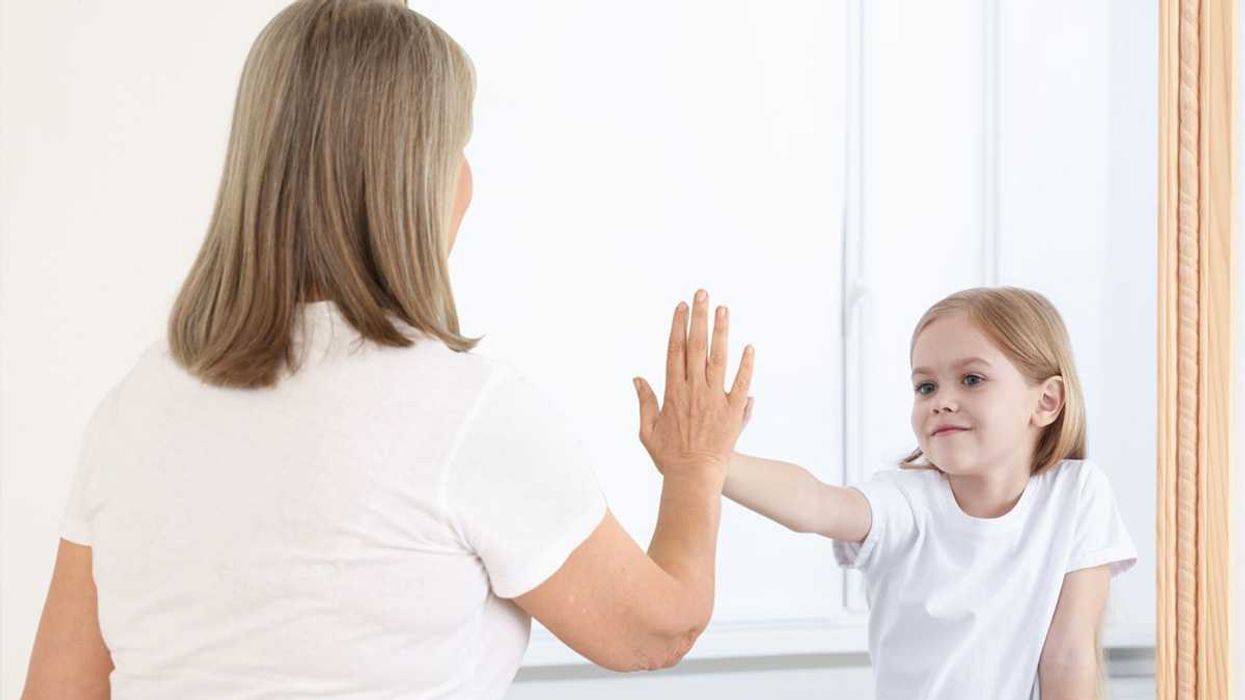 Older woman touching hands with a younger self.Photo credit
Older woman touching hands with a younger self.Photo credit 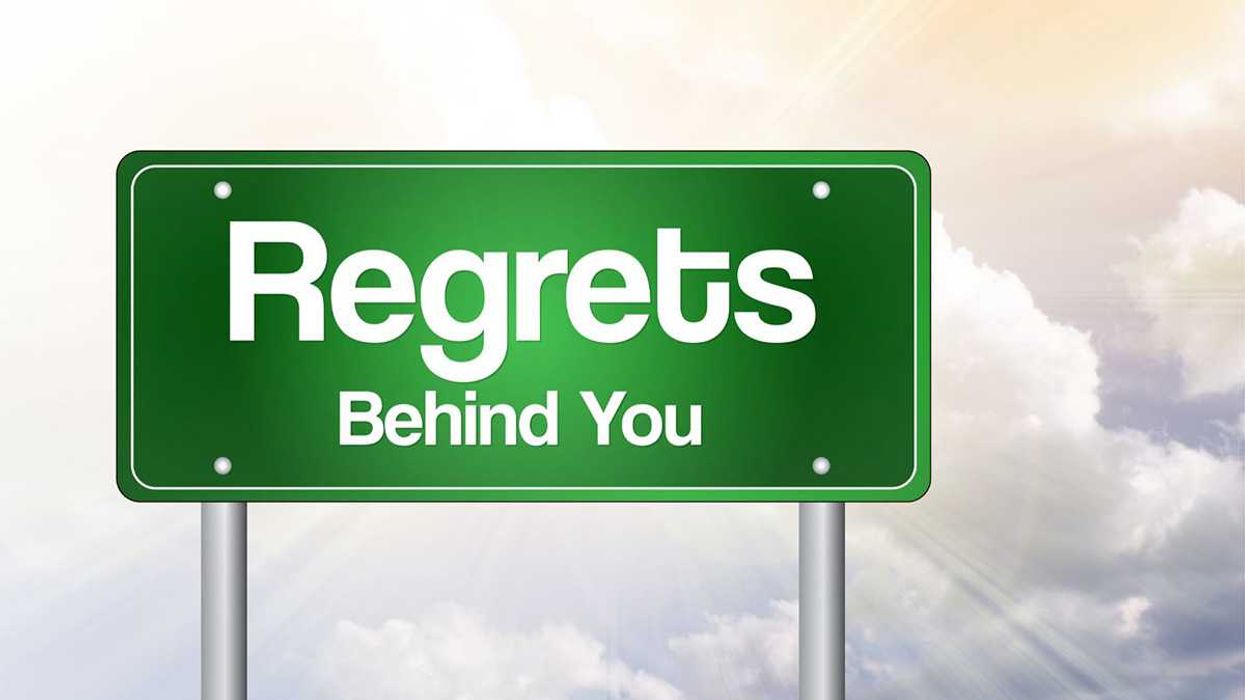 Sign reads, "Regrets Behind You."Photo credit
Sign reads, "Regrets Behind You."Photo credit 
 Couple talking in the woods.
Couple talking in the woods.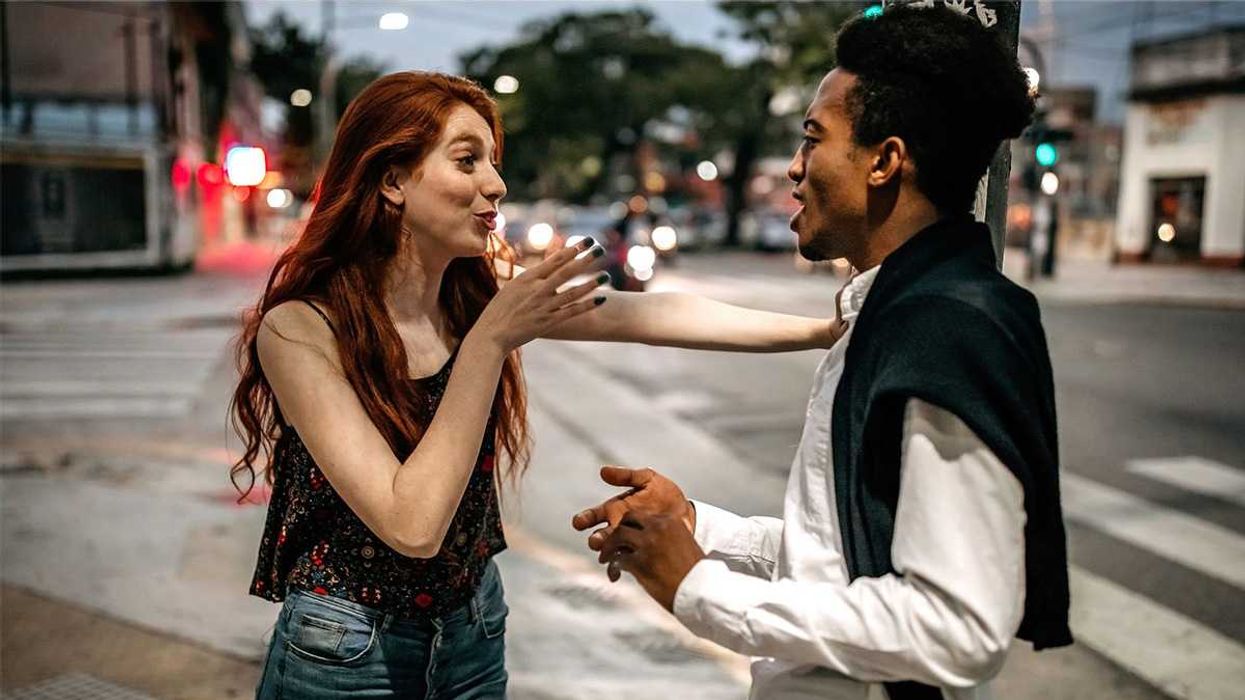 Woman and man have a conversation.
Woman and man have a conversation. A chat on the couch.
A chat on the couch. Two people high-five working out.
Two people high-five working out.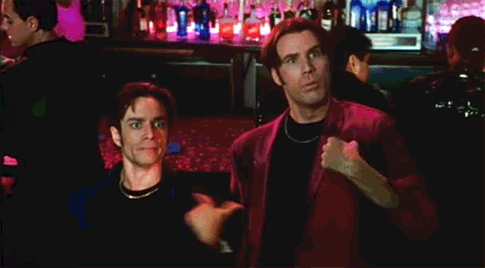 Movie scene from Night at the Roxbury.
Movie scene from Night at the Roxbury.  Friends laughing together.
Friends laughing together.
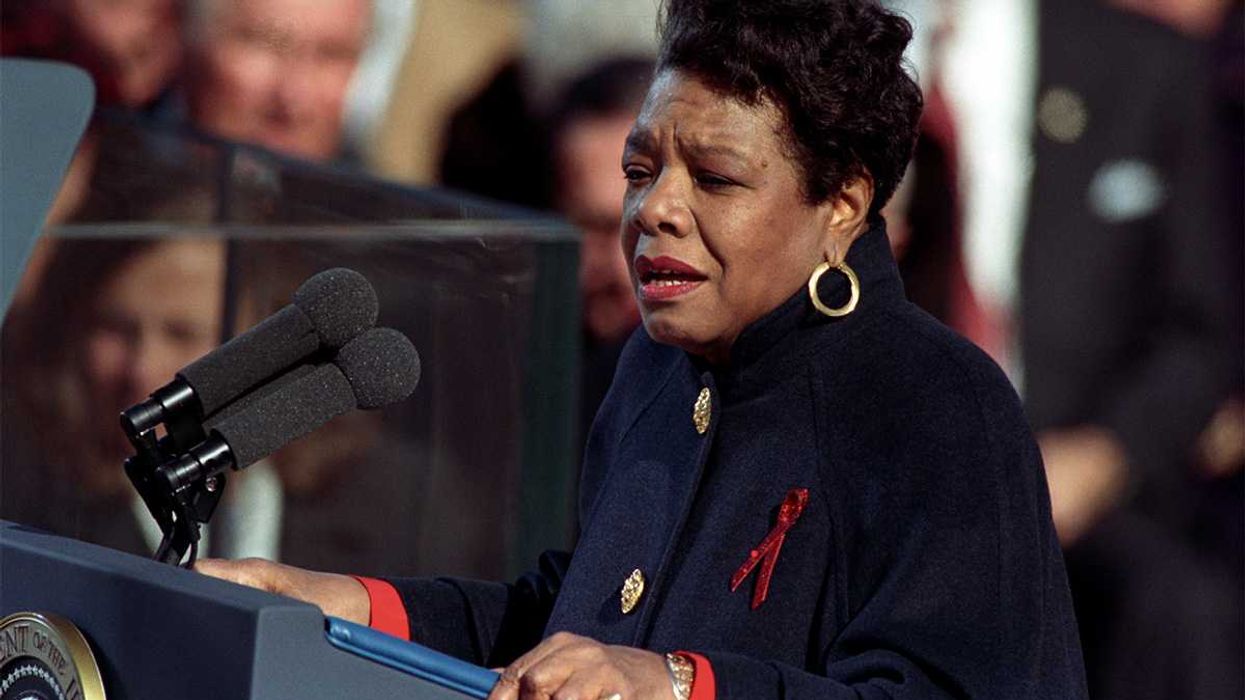 Maya Angelou reciting her poem "On the Pulse of Morning" at President Bill Clinton's inauguration in 1993.William J. Clinton Presidential Library/
Maya Angelou reciting her poem "On the Pulse of Morning" at President Bill Clinton's inauguration in 1993.William J. Clinton Presidential Library/ 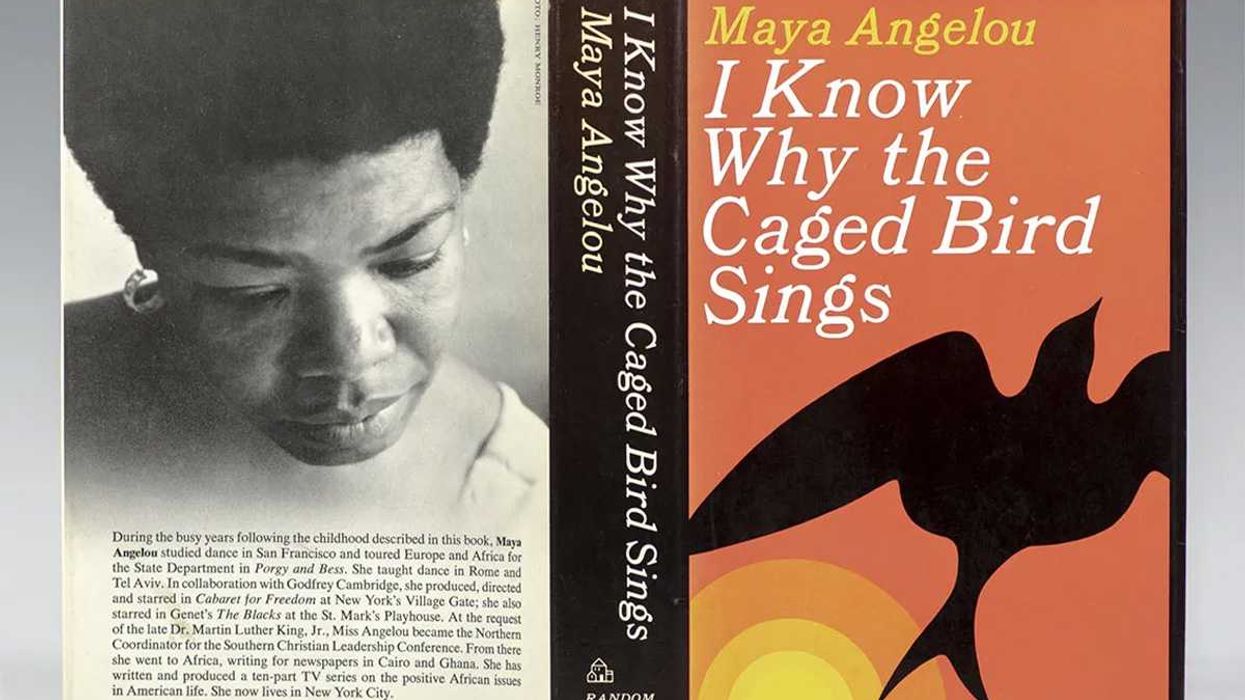 First edition front and back covers and spine of "I Know Why the Caged Bird Sings."Raptis Rare Books/
First edition front and back covers and spine of "I Know Why the Caged Bird Sings."Raptis Rare Books/ 

 Tow truck towing a car in its bedCanva
Tow truck towing a car in its bedCanva  Sad woman looks at her phoneCanva
Sad woman looks at her phoneCanva  A group of young people at a house partyCanva
A group of young people at a house partyCanva  Fed-up woman gif
Fed-up woman gif Police show up at a house party
Police show up at a house party 
 A trendy restaurant in the middle of the dayCanva
A trendy restaurant in the middle of the dayCanva A reserved table at a restaurantCanva
A reserved table at a restaurantCanva Gif of Tim Robinson asking "What?' via
Gif of Tim Robinson asking "What?' via 

 An octopus floating in the oceanCanva
An octopus floating in the oceanCanva